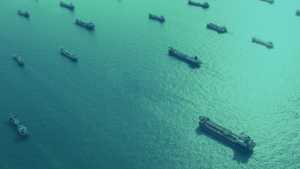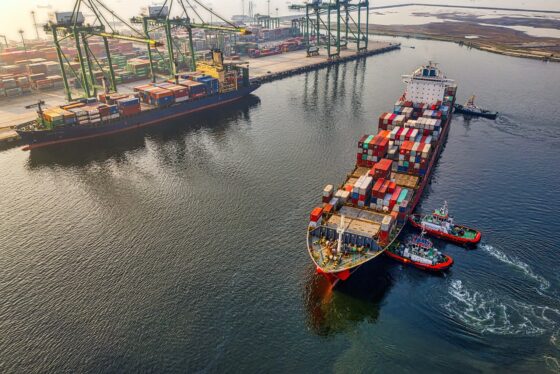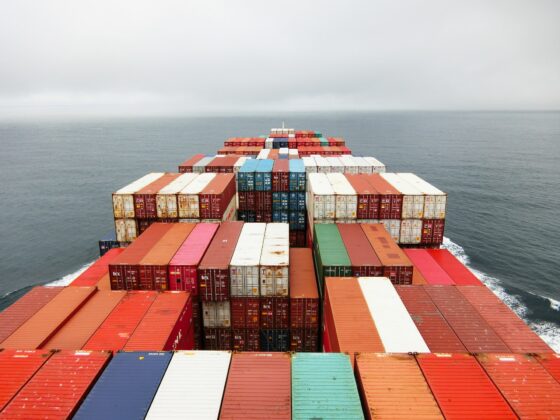
Día Marítimo Mundial: el Reino Unido anuncia una financiación de 60 millones de libras esterlinas para el transporte marítimo libre de emisiones

Se alienta a los petroleros, los cruceros, los puertos y el sector marítimo en general a encontrar formas de reducir las emisiones e impulsar el crecimiento económico, gracias a los 60 millones de libras esterlinas de financiación para la industria marítima del Reino Unido.
Para conmemorar el Día Marítimo Mundial de este año (29 de septiembre), la secretaria de transporte, Anne-Marie Trevelyan, anuncia la financiación de la tercera ronda de la Competencia de demostración marítima limpia (CMDC), que se desarrollará desde abril de 2023 hasta marzo de 2025 y ayudará a empresas y científicos innovadores. hacer realidad el transporte marítimo libre de emisiones.
El tema del Día Marítimo Mundial de 2022 es "nuevas tecnologías para un transporte marítimo más ecológico". La ONU dice que el tema refleja la necesidad de apoyar una transición ecológica del sector marítimo hacia un futuro sostenible, sin dejar a nadie atrás. Brinda la oportunidad de centrarse en la importancia de un sector marítimo sostenible y la necesidad de reconstruir mejor y de manera más ecológica en un mundo posterior a la pandemia.
El transporte marítimo internacional transporta más del 80 por ciento del comercio mundial a personas y comunidades de todo el mundo. El envío sigue siendo el método de transporte internacional más eficiente y rentable para la mayoría de los bienes.
Sin embargo, en 2020, las embarcaciones marítimas nacionales del Reino Unido contribuyeron con alrededor del 5 % de las emisiones de gases de efecto invernadero nacionales del Reino Unido, más que los trenes y autobuses combinados.

El transporte marítimo representa alrededor del 3 por ciento de las emisiones de GEI del mundo
El secretario de Transporte hizo el anuncio durante un discurso de apertura en el Atlantic Future Forum en Nueva York, en el HMS Queen Elizabeth . El discurso se centrará en cómo la seguridad marítima mejora la prosperidad global y protege todos los intereses, así como en cómo un transporte marítimo más respetuoso con el medio ambiente puede conducir a un futuro sostenible para el comercio marítimo.
“El Reino Unido siempre ha sido una orgullosa nación marinera, y ayudar al sector marítimo a ser más respetuoso con el medio ambiente significará que seguirá desempeñando un papel clave en la economía del Reino Unido para las generaciones venideras”, dice Trevelyan.
Las empresas del Reino Unido podrán ofertar por una parte de la financiación para impulsar el desarrollo de tecnologías marítimas limpias en etapa inicial para un uso más amplio en el futuro.
“La transición verde ahora está en lo más alto de la agenda de todos los gerentes, propietarios y operadores de barcos”, comenta Sarah Barrett del grupo de tecnología Wärtsilä Voyage .
“A medida que se acerca rápidamente la regulación EEXI y CII de la OMI, garantizar el cumplimiento será un factor clave para que las organizaciones marítimas aprovechen la tecnología para un transporte marítimo más ecológico. Sin embargo, en el panorama marítimo competitivo de hoy, las organizaciones están bajo una presión cada vez mayor para hacer malabarismos con los objetivos ambientales y regulatorios con acciones que garanticen el margen de beneficio más alto posible.
“Los potentes algoritmos de software de hoy pueden desempeñar un papel importante aquí, analizando datos para hacer recomendaciones que podrían informar la toma de decisiones y mejorar enormemente el rendimiento, la eficiencia y la optimización de viajes y embarcaciones. Tome el combustible, el costo más grande para las operaciones de los barcos, como ejemplo. Los conocimientos basados en software pueden ayudar a trazar el viaje más optimizado para que se consuma menos combustible. Esto no solo reduce las emisiones de un barco en esa ruta, sino que también puede liberar dinero para reinvertir en otros lugares en los objetivos de descarbonización.
“Al final del día, la toma de decisiones basada en datos desempeñará un papel crucial en la preparación del envío para el futuro y garantizará que las empresas puedan continuar operando negocios seguros, sostenibles, eficientes, compatibles y rentables”.

El transporte marítimo sigue siendo el método de transporte internacional más eficiente y rentable para la mayoría de las mercancías.
También se anunciaron hoy (29 de septiembre de 2022) los proyectos ganadores de la segunda ronda de la CMDC, lanzada el 2 de mayo.022, que vio 12 millones de libras esterlinas compartidas entre 121 empresas del Reino Unido.
Entre los ganadores se encuentran tres proyectos que exploran el desarrollo de corredores marítimos ecológicos: rutas marítimas sin emisiones entre dos puertos. Estas rutas se basan en la Declaración de Clydebank respaldada por 24 estados en la COP26.
El consorcio Clean Tyne Shipping Corridor, el Aberdeen Harbour Board y el estudio de cruce del Mar del Norte impulsado por hidrógeno de ACUA Ocean y el estudio (GCSS) entre el puerto de Dover y los puertos de Calais y Dunkerque, tienen como objetivo apoyar la transición a cruces verdes hacia y del Reino Unido Esto podría algún día crear acuerdos internacionales que verían solo embarcaciones de cero emisiones, incluidos transbordadores, embarcaciones de recreo y barcos de trabajo, entre el Reino Unido y otros puertos.
“El sector marítimo es de crucial importancia para el Reino Unido, con más del 95 por ciento de nuestro comercio a través de los principales puertos que nos conectan con la economía global”, dice el director ejecutivo de Innovate UK para Net Zero, Mike Biddle.
“Como una parte tan importante de la economía del Reino Unido, se necesita un cambio significativo para garantizar que el sector se adapte a tecnologías nuevas y limpias, reduciendo las emisiones marítimas”.
